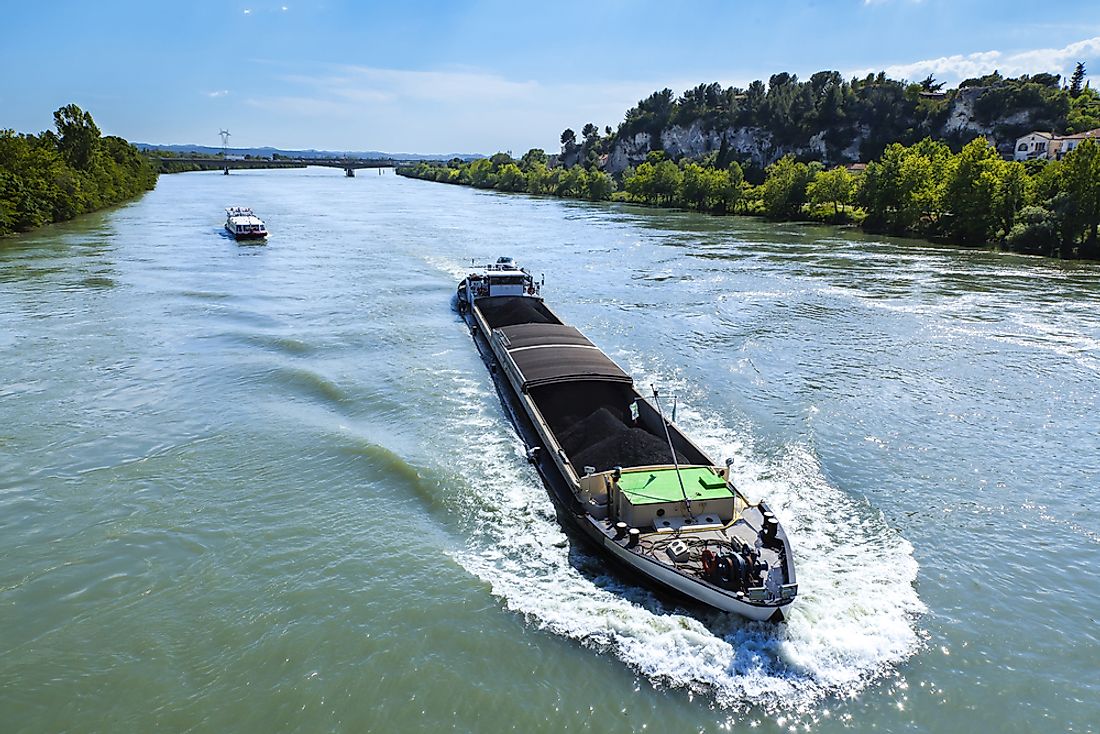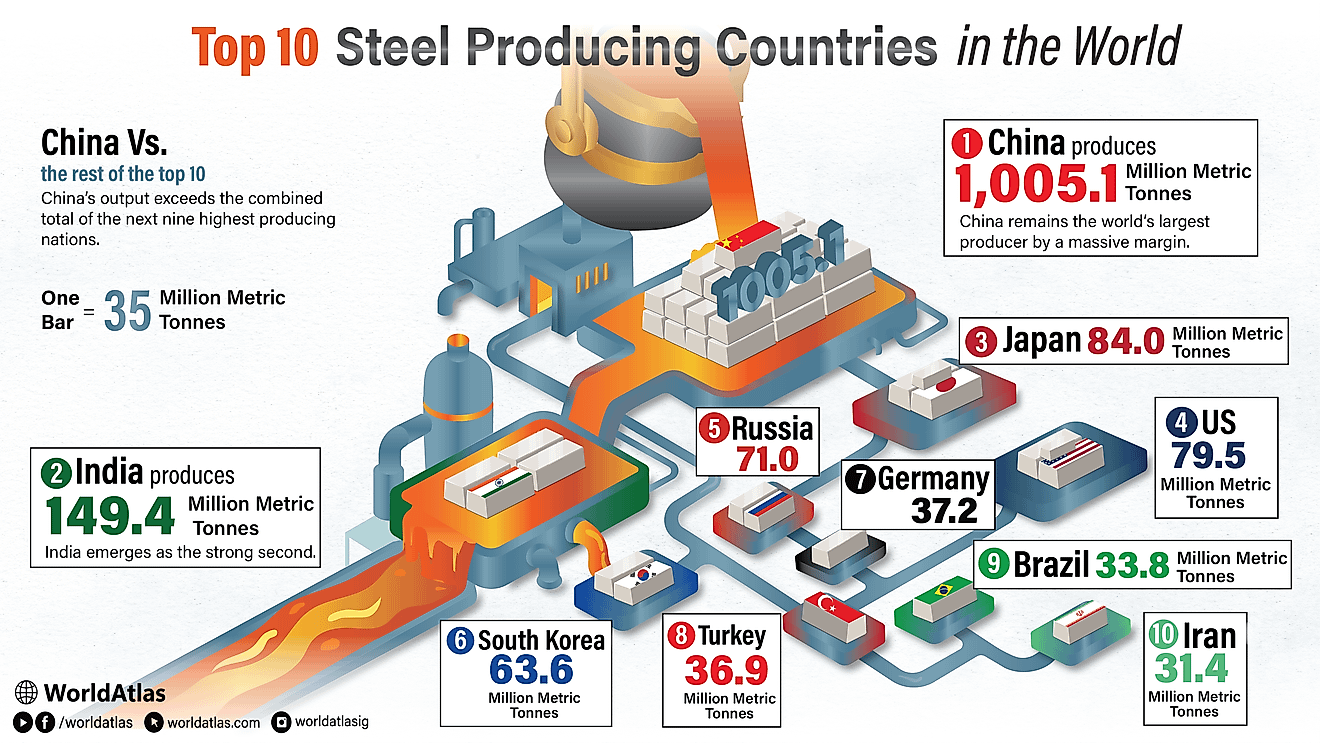What Are The Major Natural Resources Of France?

France is among the most powerful states in the world with an economy that is ranked 6th behind the United Kingdom, Germany, Japan, China, and the United States. Trade and agriculture fuel much of its economy with the country having vast tracts of arable land that supports all kinds of agricultural activities that range from food crops to timber production.
However, when it comes to natural resources, France surprisingly has a limited reserve. Much of the natural minerals that were abundant across the nation were depleted after they were heavily exploited during the industrial revolution that played a huge part in turning France into what it is today. Some of the natural resources found in France include the following:
Coal
Coal was an essential resource that played a significant role in the industrial revolution wave that swept across European countries including France. Back in the 1800s, France had colossal coal reserves which have over time become depleted through overuse. The quality of the ore was low and could not compete with coal from other nations. Much of it was used domestically instead. As the world changed and new sources of energy were discovered, coal mining in France drastically reduced until it was stopped in 2004. This was brought about by the need to conserve the environment by turning to environmentally friendly sources of energy. The current French president has pledged to shut down all coal mining activities in France by the year 2021.
Natural Gas
Natural gas was first discovered in the south-western region of France called Lacq in 1957 where it was estimated that approximately 8.8 trillion cubic feet of natural gas were trapped underground ready for extraction. Production started in 1958 but declined in 1978 after the depletion of the reserves. By the end of the millennia, natural gas production was negligible and too small to support the country's needs forcing France to turn to imports.
Uranium
Uranium deposits are located in the Massif Central which at one time had uranium ore reserves estimated at 50,000 tonnes. France, however, has a very high demand for energy and the uranium deposits are unable to meet, in fact uranium mining in France came to an end in 2001 which forced the country to turn to the importation of uranium to cover for more than half of the annual energy consumption with Niger being one of its primary uranium sources. There were more than 59 active nuclear plants as of 2010 with all of them contributing around 94.6% of all the primary electricity used in homes and factories around the country.
Hydroelectric Energy
As much as nuclear power is vital in France, hydro-electric energy is France's most important source of renewable energy accounting for about 19.7% of installed capacity in France; it comes second to nuclear energy. France has many rivers that run through its vast landscapes creating waterfalls backed by reservoirs and dams that are harnessed to produce electricity for the masses. Eguzon Dam in Central France is among the main stations that produce substantial percentage of the total output. The dam gets its waters from the Creuse River, and it is about 61 meters high.
Wind Energy
As of 2015, France was the 8th largest wind power nation in the world producing a total of 10.38 MW of electricity. The vast land area in France and the nature of the landscape has given France a huge potential of maximizing on wind energy production which goes a long way in reducing the strain on nuclear and hydroelectric energies. Future projection estimates indicate that France will be able to produce 26,000 MW by 2023.
Bauxite
Bauxite was first discovered in France in 1821 in the Brignoles region in the Foix mining district. The strange thing about this particular bauxite mine is that not much has happened since the discovery, though the area has been undergoing routine maintenance with no large-scale extraction of the bauxite itself leaving the deposit mostly untouched. This has been attributed to the non-viability of a massive mining operation as those involved consider the bauxite deposit to be too small to justify any significant extraction undertaking.
Iron Ore
Lorraine has been the principal source of iron ore in France where large deposits of the precious natural resource alongside coal were responsible for the rapid population growth during the industrial revolution. For a while, Lorraine was home to steel industries which depended on the iron ore, as the deposits depleted over time and when competition from other nation became stiff most of these industries closed down. The government is currently trying to revive Lorraine back to its former glory with mixed results. Many of the remaining residents have turned to agriculture.
Thermal and Solar Energy
As the world moves towards reducing reliance on nuclear energy and natural gas, other environmentally friendly sources of energy have been explored worldwide. In 2016 France inaugurated their first geothermal power station in Marseille with the aim of providing an alternative to wind energy. Solar power is another area that France has actively been engaging in with a total output of about 7,165 MW produced in 2016 alone. France’s strategic location allows it to receive long hours of direct sunshine which makes solar energy a viable option.
Other Resources
There are other major and minor natural resources that France relies on for trade and the day to day running of the country. Minerals like Potash are mined in Alsace while sodium chloride is extracted from the Lorraine mines and parts of the Franche-Comte. Sulfur is also another resource that is found in limited deposits of natural gas in Aquitaine. When it comes to natural oil, France heavily relies on imports but has set up its refineries around the country. Natural oil deposits within France are few and scattered with most of them holding very little of the precious liquid to support a large scale extraction project.











